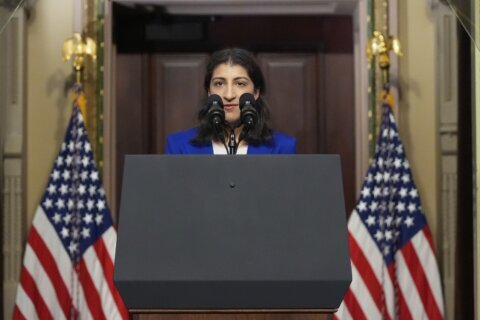Coming into this election season, many Americans are struggling financially due to the elevated inflation and interest rates that have persisted since 2021.
A recent survey by investment firm D.A. Davidson found that 75% of Americans have had trouble covering basic expenses over the past six months. Some people report picking up second jobs, skipping student loan payments or pausing retirement plan contributions to make ends meet.
[Tips to Avoid Living Paycheck to Paycheck]
Considering the landscape, it’s not surprising that 85% of Americans say they’re concerned about how the upcoming presidential election will affect the markets and 78% are anxious about their financial situations in the context of the election results.
Here’s how experts say presidential elections can impact financial health and what you can do to protect yourself.
Don’t Panic About Market Volatility
Market volatility during election years can be tough to stomach.
“In the lead-up to elections, market behavior tends to be extremely volatile as investors reallocate based upon which sectors they think will perform the best, depending on which candidate is in the lead,” Nelson Chu, CEO and founder of Percent, an alternative investments company, said in an email.
The D.A. Davidson survey found that, in anticipation of the election, 40% of Americans with investments have already made changes to their portfolios or plan to do so in the next six months.
“We have been fielding questions from clients who are concerned about the presidential election’s impact on the markets,” Roberto Figueiredo, certified financial planner and portfolio manager at Reynders, McVeigh Capital Management, said in an email.
He explained that while many may feel the urge to move all their money to cash, there could be significant tax implications arising from such moves, and those decisions are often made when the market has bottomed out.
“It’s crucial to understand that time invested in the market outweighs timing the market over the long term,” he said.
Paul S. Stanley, CFP and managing partner at Granite Bay Wealth Management, had a similar take. “The stock market has been positive in 20 of the past 24 election years (83%) and 72 of the last 98 years (73%),” he said in an email.
“We speak about markets like they are a living breathing thing, but behind that word ‘markets’ are people running companies, investing capital and making decisions. All people are inherently emotional and like certainty. So when there is a lot of uncertainty, it will lead to a lot of volatility,” Stanley said.
[READ: Election 2024: How Stocks Perform in Election Years]
However, he explained that nobody gains or loses money in an investment until they sell it, so reacting emotionally to short-term volatility is perhaps the biggest mistake investors make.
“If you have a goal that requires money in November of this year, then you should be concerned about the short-term volatility the election may cause and you probably should not have that money in the market,” Stanley said.
But if you have a time horizon of 10 years or more, you don’t want to pay attention to the short-term swings.
“You should remember 97% of the time the market has been positive over a 10-year period,” he added.
Fed Rate Cuts, Inflation and Other Factors
Many are anxiously awaiting Fed rate cuts in hopes that mortgage and credit card rates will drop too. But will the election influence whether the Fed makes cuts or not?
After the latest Federal Open Market Committee meeting, the Fed held its benchmark rate at 5.25% to 5.50% but said recent economic indicators including job gains, unemployment rates and inflation rates are heading in the right direction. Predictions of a cut in September are swirling, but the Fed is taking a “wait and see” stance.
[READ: Fed Sees 1 Rate Cut in 2024]
Stanley said it’s likely that we’ll see increased volatility through the end of the year due to interest rates, inflation, the Federal Reserve and geopolitical events, and recommended a well-stocked cash reserve.
“It is vital so that you can ride out any rough patches. If you keep roughly six months’ worth of your living expenses in safe liquid investments, then you can rest easy during periods of uncertainty, whether personal or global,” he said.
Plan a Post-Election Financial Check-In
Beyond riding out market fluctuations on long-term investments and having a well-stocked emergency fund, plan to revisit your finances after the next president is elected.
“Once the outcome of the election is known, this is a key time to revisit your financial plan and amend it as needed to accommodate the new normal. There are certain things that may be affected such as tax rates, perhaps the sunsetting of the Trump tax cut, student loan forgiveness and business regulations that may have an impact on your investments and your personal finances,” Stanley said.
Use this opportunity to evaluate policy changes that will impact your finances going forward.
More from U.S. News
This Is the One Thing Americans Refuse to Stop Spending On
How Transportation Costs Impact Inflation
Will the Presidential Election Impact Your Financial Health? originally appeared on usnews.com







